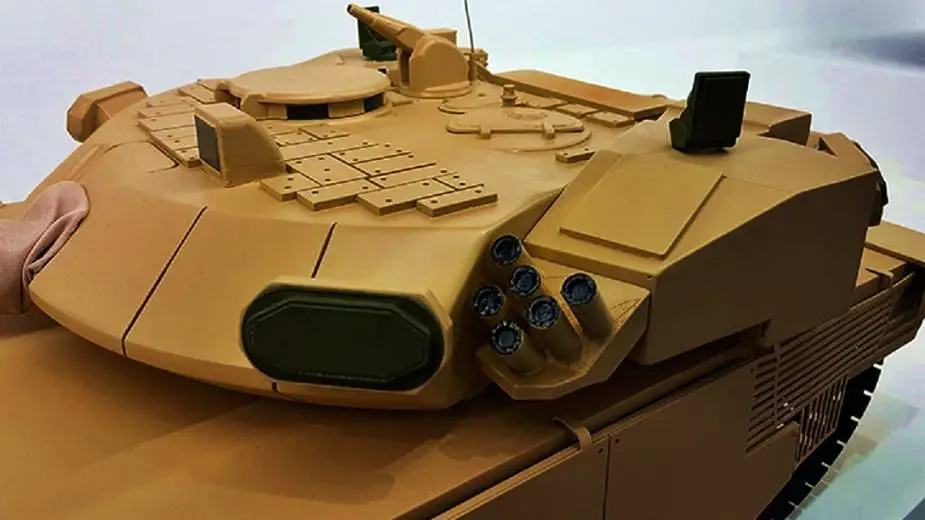Breaking news
Rafael Trophy APS to equip on Indian Army T-90S Bhishma MBT.
A tweet posted by Kunal Biswas on October 26 shows a model of Rafael’s Trophy APS (Active Protection System) adapted to an Indian army T-90S Bhishma main battle tank. Some 3,000 tanks and other armored vehicles might be fitted with this APS following a major decision taken during a (Defense Acquisition Council) DAC meeting held in February 2021.
Follow Army Recognition on Google News at this link

Rafael Trophy APS to be adapted on Indian Army's T-90S Bhishma MBTs (Picture source: Twitter account of Kunal Biswas)
As written by Force India Magazine, the T-90S has space constraints and its Auxiliary Power systems might not be sufficient enough to support the APS, but the new T-90MS being procured has a new APU just behind the left sprocket wheel. However, the variant India would receive will be without Arena APS.
It is known that an APS can be evaluated primarily on the parameters — sensor threat detection range, reaction time, types of countermeasures, threat interception range, jamming resistance, interception methodology and multi-shot interception capability additionally engineering parameters such as size, weight and power consumption will also be considered. APS has two types of sensors active (Millimeter Wave radar, Light Detection and Ranging) passive (Laser Warning Receiver, Ultra Violet missile warning system) the sensor information is fed to the countermeasures which can be from soft-kill or hard-kill. The soft-kill countermeasures consist of multispectral aerosol smoke grenades which can blind all missiles including fire and forget missiles, Electro-Optical/ Infrared (EO/IR) jammers can jam Semi-Active Command Line of Sight (SACLOS) missiles which constitute 70 percent of the current missile threat. They are simpler systems that require directional information from sensors.
Hard-kill countermeasures use kinetic means to destroy, disable or deflect incoming projectiles, they require more precise positional information including direction, elevation, distance and velocity of the projectile. The future challenge for APS is in intercepting Armour Piercing Fin Stabilised Discarding Sabot (APFSDS) rounds which travel at velocities of 1,500m/s-1,800m/s which is six-eight times faster than missiles. Ideally, the Indian Army would look to incorporate both countermeasures to maximize the survivability by adding more layers to the proverbial survivability onion peel, Force India concludes.






















